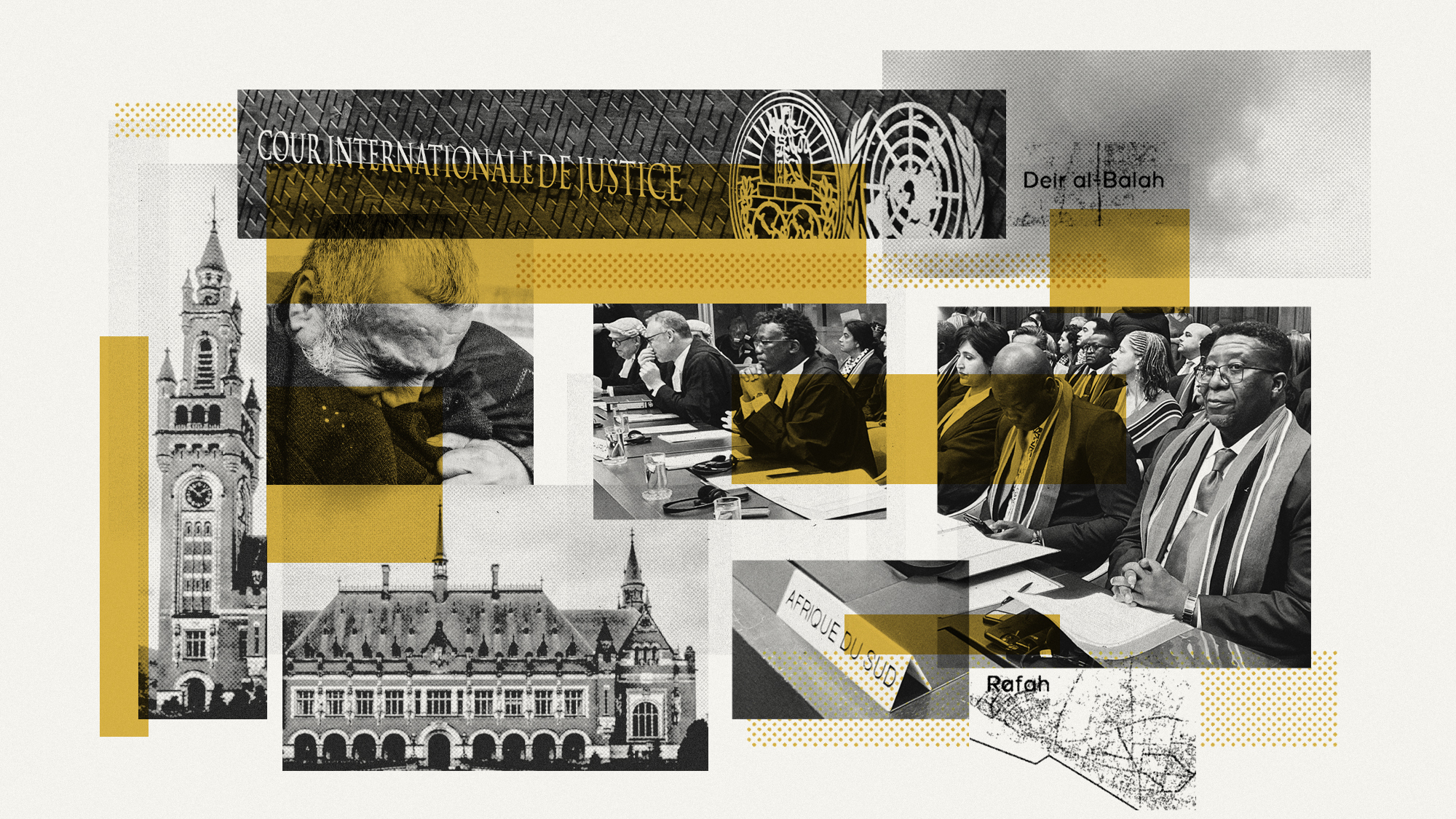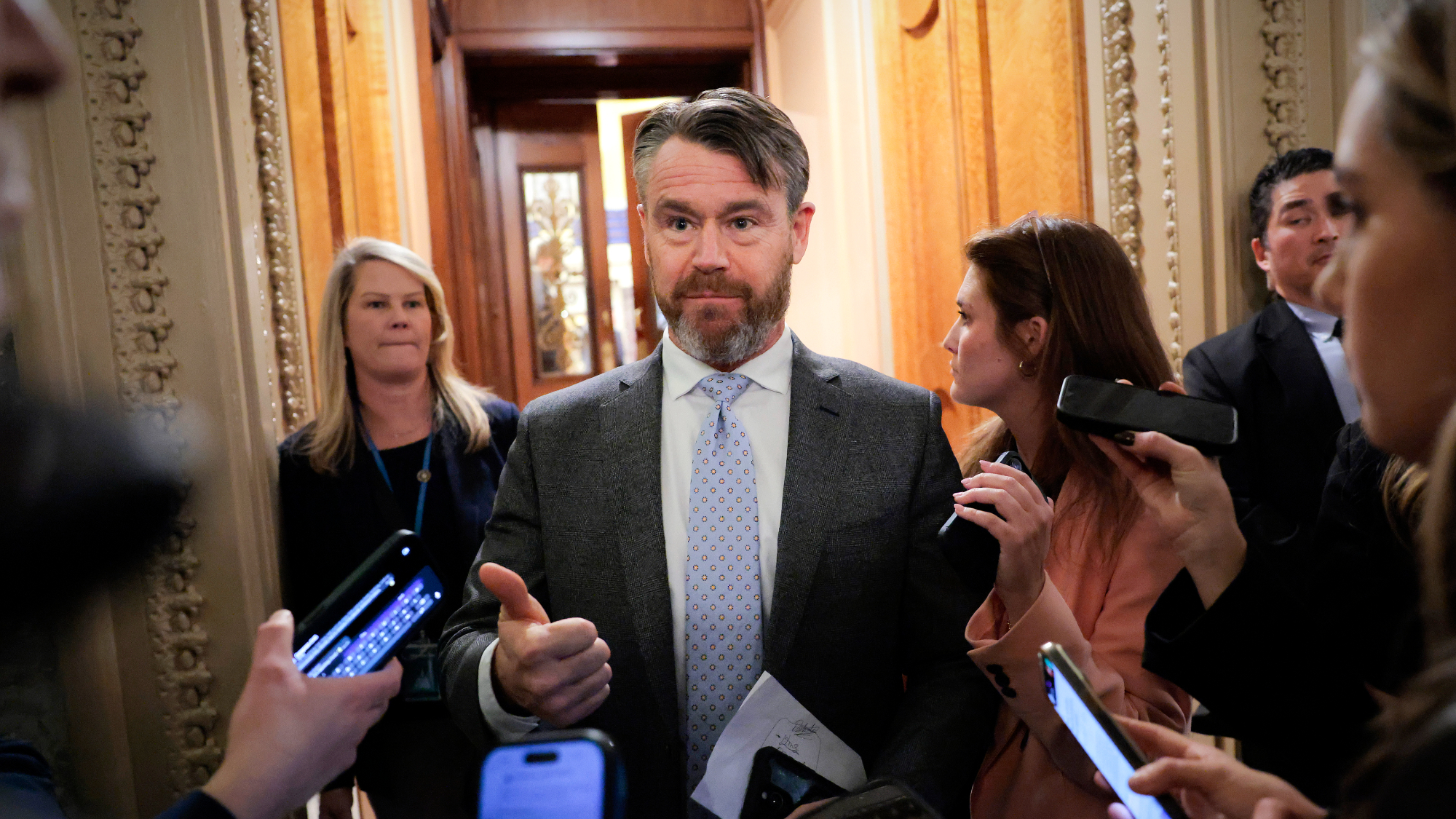Israel faces genocide charges. Will they stick?
The war in Gaza has killed thousands of civilians. Judges will decide if that's a war crime.


A free daily email with the biggest news stories of the day – and the best features from TheWeek.com
You are now subscribed
Your newsletter sign-up was successful
Something extraordinary happened on Thursday. Israel — created as a modern nation in the aftermath of the Holocaust — went on trial in the International Court of Justice (ICJ) in The Hague, accused of genocide in the Gaza Strip.
The court "has never judged a country to be responsible for genocide," The Associated Press reported. That could change. Israel's war against Hamas, started after the murderous Oct. 7 attacks by the Palestinian group, has reportedly killed more than 23,000 Gazans. South Africa lodged the formal accusation against Israel, and on Thursday asked for a halt to the war. "Nothing will stop the suffering except an order from this court," said South African lawyer Adila Hassim.
Reuters reported that Israel, of course, denies the allegations. "We have seen today one of the biggest shows of hypocrisy in history when South Africa became the legal arm of a terror organization, Hamas," a Foreign Ministry spokesperson. The war against Hamas came only after the attacks in which hundreds of Israelis were "massacred, executed, murdered, burned alive, raped and kidnapped." Israel, the spokesperson said, "is executing its right to self-defense."
The Week
Escape your echo chamber. Get the facts behind the news, plus analysis from multiple perspectives.

Sign up for The Week's Free Newsletters
From our morning news briefing to a weekly Good News Newsletter, get the best of The Week delivered directly to your inbox.
From our morning news briefing to a weekly Good News Newsletter, get the best of The Week delivered directly to your inbox.
Israeli officials, though, are nervous about the outcome of this week's hearings. "Since there is a bloc of anti-Israel judges, we should be worried," Hebrew University's Robbie Sabel told The Times of Israel. A declaration of genocide, he said, "would be a stain on our reputation."
What the commentators said
The charges against Israel "cannot be so easily dismissed," Mark Leon Goldberg argued at The New Republic. South Africa's case quotes "over a dozen senior civilian and military leaders," including Prime Minister Benjamin Netanyahu, to support the notion that the mass death of Gaza civilians "is not merely an unfortunate consequence" of the war against Hamas, but is instead "part of the point." Don't expect any judgments soon, however. At the ICJ, "the wheels of justice move very, very slowly."
"Israel is not committing genocide — but Hamas is," Stanislav Pavlovschi and Arsen Ostrovsky wrote at The Hill. The crime of genocide "has nothing to do with the number of civilian casualties" and everything to do with the intent to destroy "a national, ethnic, racial or religious group." Hamas has declared its goal is the destruction of Israel. But Israel's goal is to destroy Hamas. "Israel," the pair write, "is not seeking to destroy the Palestinian people, whether in whole, in part, or in any manner."
"Genocide or not, Israel has lost the moral high ground," Avraham Shama countered, also at The Hill. After Hamas' initial attack, the "world's public opinion was supportive of Israel's right to retaliate." But the "wholesale, indiscriminate killing of Palestinians" has reversed that calculus. Israel "can no longer claim 'we are different, we are more humane.'"
A free daily email with the biggest news stories of the day – and the best features from TheWeek.com
What next?
Israel is hoping for vindication at ICJ, Axios reported, with a "strategic goal" of having the court "recognize that the Israeli military is operating in the Strip according to international law." But it's not clear how much difference an adverse ruling would actually make. The court, after all, already ordered Russia to cease its invasion of Ukraine — and the war is still grinding on after two years. "While ICJ orders are binding, they are hard to enforce."
But some critics say that Israel has already lost a significant battle by seeing this case go before the court. "South Africa has already won by getting the hearing, and Israel knows it," Francis Boyle, a human rights lawyer, told CBS News. An order to halt the war could — technically — be accompanied by United Nations sanctions against Israel, though it is likely the United States would veto any U.N. efforts to punish Israel. The Biden administration remains committed to Israel, and that remains true amidst the genocide charges: Secretary of State Antony Blinken this week called the allegations "meritless."
Joel Mathis is a writer with 30 years of newspaper and online journalism experience. His work also regularly appears in National Geographic and The Kansas City Star. His awards include best online commentary at the Online News Association and (twice) at the City and Regional Magazine Association.
-
 The ‘ravenous’ demand for Cornish minerals
The ‘ravenous’ demand for Cornish mineralsUnder the Radar Growing need for critical minerals to power tech has intensified ‘appetite’ for lithium, which could be a ‘huge boon’ for local economy
-
 Why are election experts taking Trump’s midterm threats seriously?
Why are election experts taking Trump’s midterm threats seriously?IN THE SPOTLIGHT As the president muses about polling place deployments and a centralized electoral system aimed at one-party control, lawmakers are taking this administration at its word
-
 ‘Restaurateurs have become millionaires’
‘Restaurateurs have become millionaires’Instant Opinion Opinion, comment and editorials of the day
-
 How are Democrats turning DOJ lemons into partisan lemonade?
How are Democrats turning DOJ lemons into partisan lemonade?TODAY’S BIG QUESTION As the Trump administration continues to try — and fail — at indicting its political enemies, Democratic lawmakers have begun seizing the moment for themselves
-
 How did ‘wine moms’ become the face of anti-ICE protests?
How did ‘wine moms’ become the face of anti-ICE protests?Today’s Big Question Women lead the resistance to Trump’s deportations
-
 How are Democrats trying to reform ICE?
How are Democrats trying to reform ICE?Today’s Big Question Democratic leadership has put forth several demands for the agency
-
 Is the Gaza peace plan destined to fail?
Is the Gaza peace plan destined to fail?Today’s Big Question Since the ceasefire agreement in October, the situation in Gaza is still ‘precarious’, with the path to peace facing ‘many obstacles’
-
 Why is Tulsi Gabbard trying to relitigate the 2020 election now?
Why is Tulsi Gabbard trying to relitigate the 2020 election now?Today's Big Question Trump has never conceded his loss that year
-
 Trump’s ‘Board of Peace’ comes into confounding focus
Trump’s ‘Board of Peace’ comes into confounding focusIn the Spotlight What began as a plan to redevelop the Gaza Strip is quickly emerging as a new lever of global power for a president intent on upending the standing world order
-
 Will Democrats impeach Kristi Noem?
Will Democrats impeach Kristi Noem?Today’s Big Question Centrists, lefty activists also debate abolishing ICE
-
 Trump, Senate GOP block Venezuela war powers vote
Trump, Senate GOP block Venezuela war powers voteSpeed Read Two Republicans senators flipped their vote back amid GOP pressure
